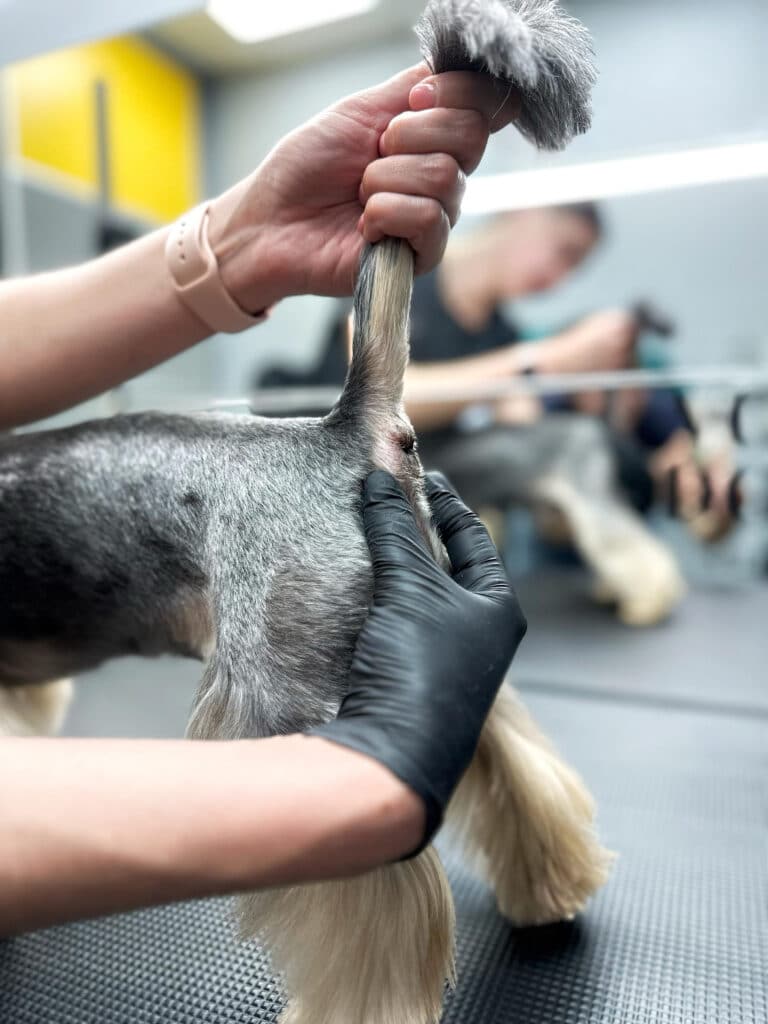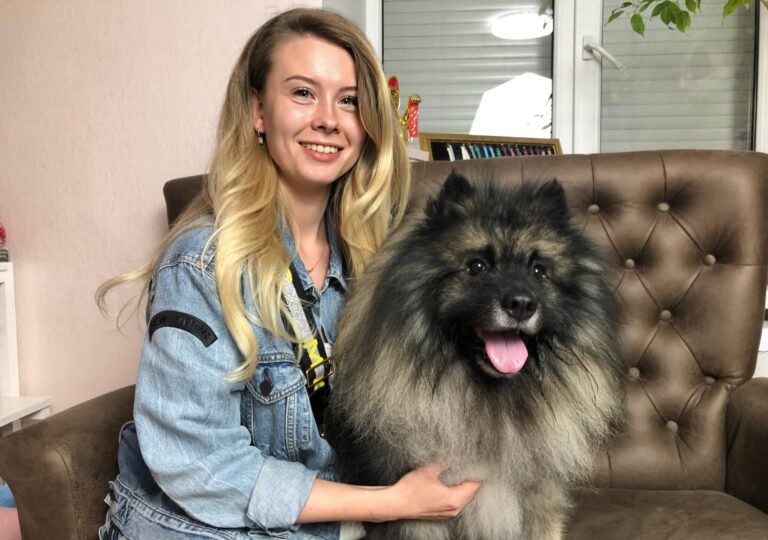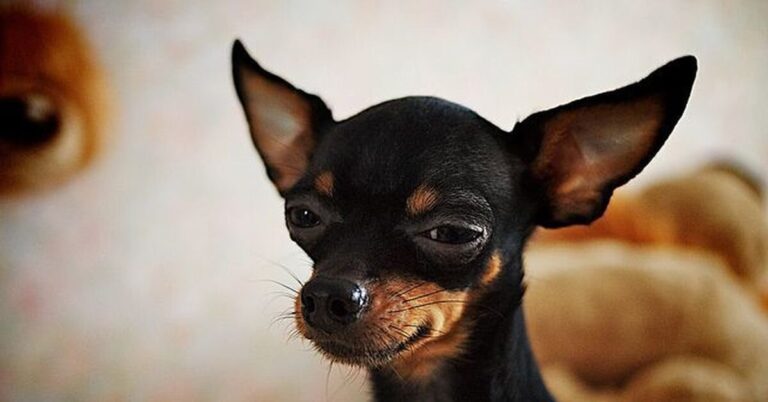Paraanal glands are small glands in dogs that are located on either side of the anus and contain a special secretion that is released during defecation, stress, or territory marking. They play an important role in a dog’s health and comfort, but may need extra attention to avoid problems.
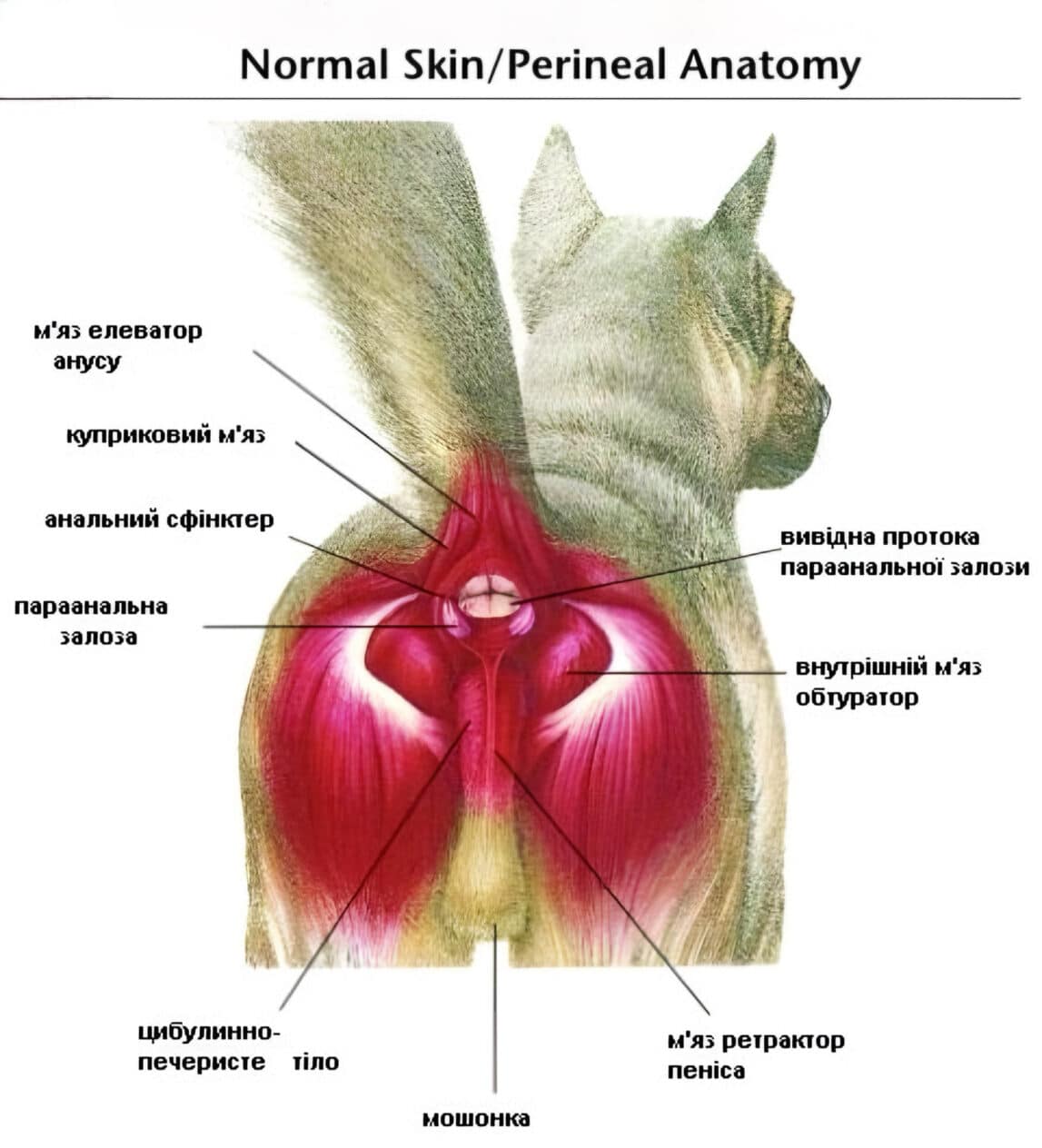
In particular, nature does not foresee a separate exit of the secret, so it is extremely important that it independently exits the glands together with the feces. However, sometimes these glands can become clogged for a number of reasons, leading to inflammation. Over time, the production of secretion increases, the glands begin to work more actively, and all this can provoke the formation of a fistula. The dog will experience significant pain and discomfort, bloody and/or purulent discharge may appear, and in the chronic form, the muscles and mucous membranes will gradually break down.
What are the reasons for the incorrect work of the paraanal glands?
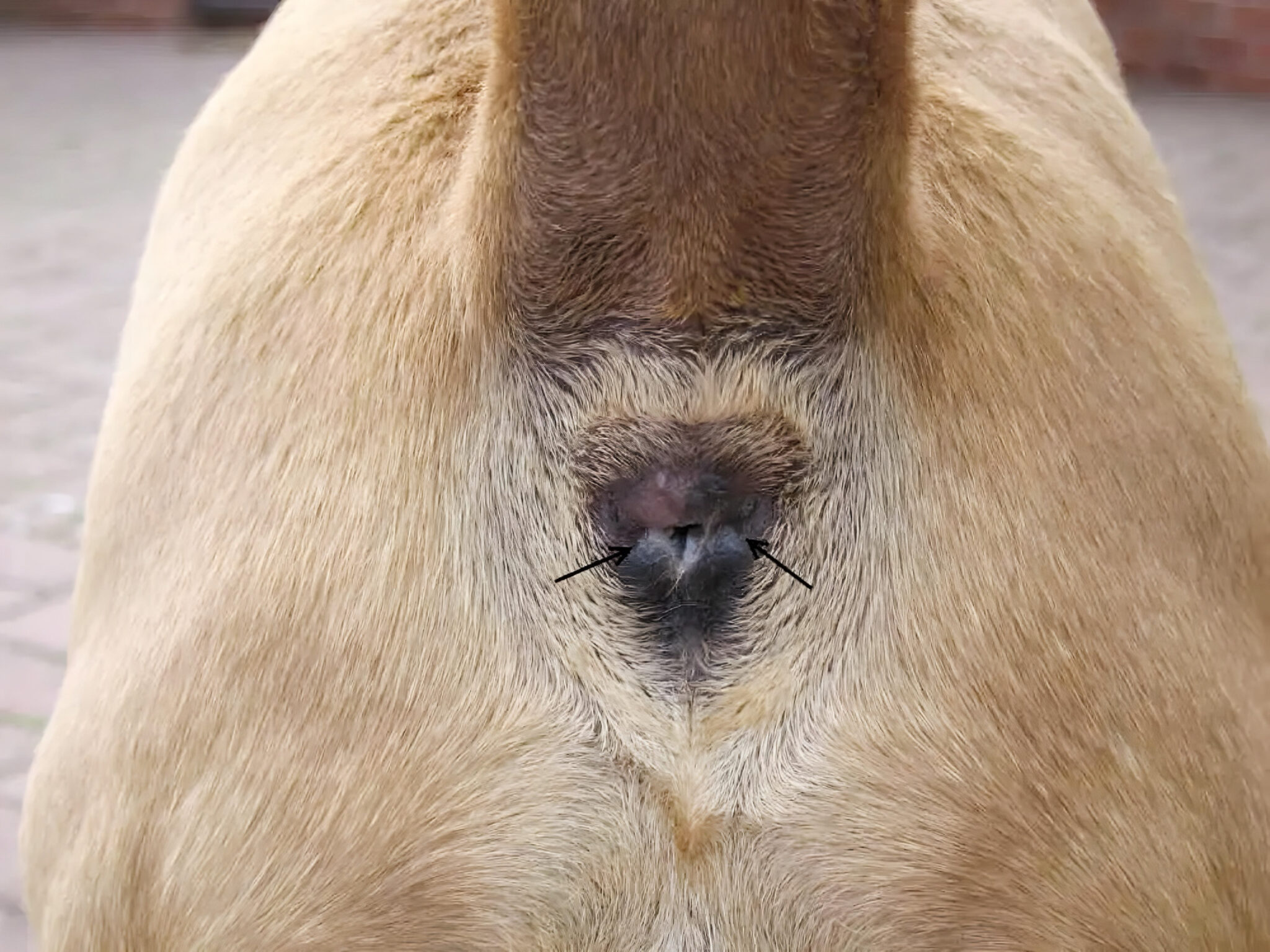
- Insufficient stimulation. Dogs that lead a passive lifestyle may not have enough stimulation to naturally release secretions from the paraanal glands. This can lead to its accumulation and clogging.
- Change in stool consistency. A change in diet or impaired peristalsis can affect the consistency of stool. Physical stimulation of the glands with faecal masses is important to expel the secretion, so soft feces complicates this task.
- Inflammation or infection. Inflammation in the area of the anus or other internal problems can lead to increased secretion production and its accumulation.
- Stress or anxiety. They can affect the physiological processes of the dog, including the function of the paraanal glands.
Symptoms of inflammation of the paraanal glands
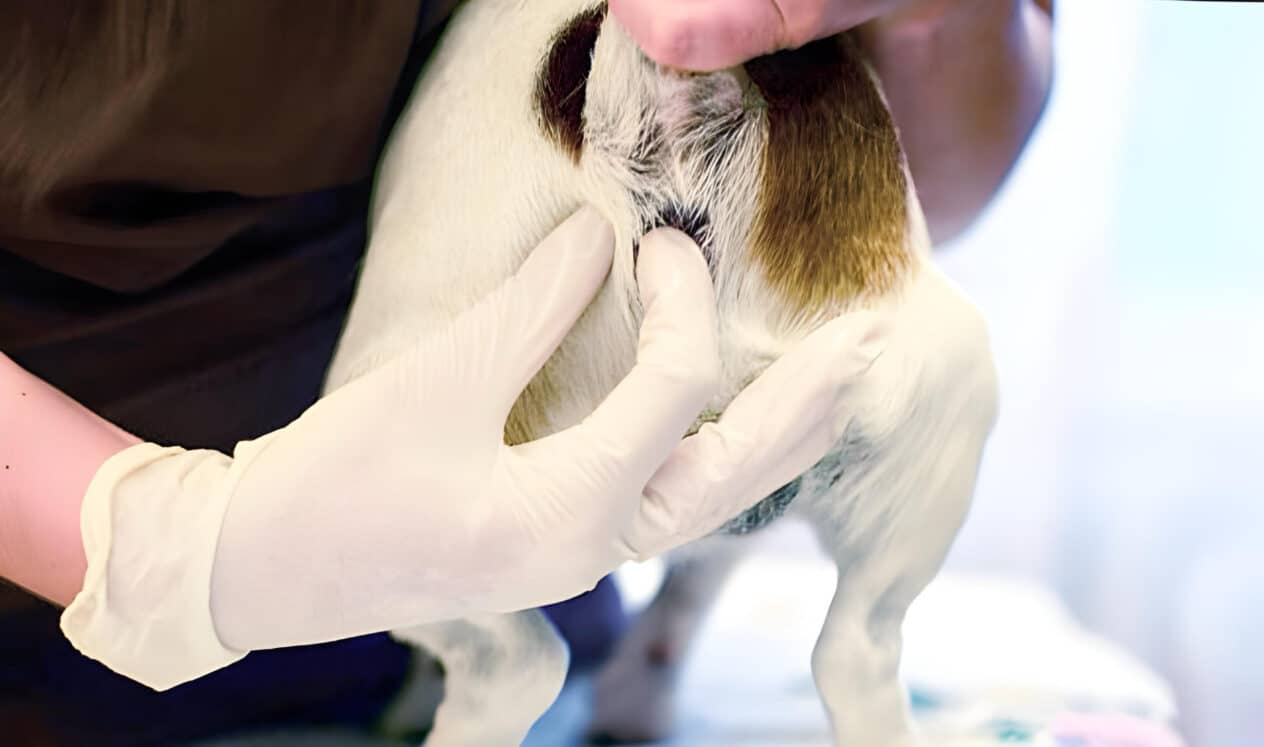
There are several signs that may indicate this:
- The dog licks or gnaws the back of the body. This can be an indicator of discomfort in the anus and an attempt to relieve itching. Sometimes dogs can “ride” on the bottom, trying to help the glands to clean themselves.
- Unpleasant smell. If you started to smell a strong smell from your pet, this may indicate an excessive accumulation of secretions in the paraanal glands.
- Pain and discomfort. If your dog does not allow you to touch or responds to touch in the bottom area, this may indicate inflammation of the glands.
- Preliminary signs of inflammation. If the inflammation progresses, swelling and redness may appear around the anus, purulent discharge may also be observed.
If you notice any of these signs, especially if they repeat or become more intense, it may be a signal to clean the paraanal glands. This is extremely important and we will give the main factors why you should pay attention to it.
- Prevention of health problems. Paraanal glands can become inflamed if they are not cleaned regularly. This can lead to pain in your dog and potentially serious medical problems.
- Prevention of unpleasant odor. The accumulation of secretions in the paraanal glands can lead to an unpleasant odor that can be felt even at a great distance. Regular cleaning of the glands helps to prevent this unpleasant effect.
- Preservation of skin health. Inflammation or infection in the paraanal glands can spread to healthy tissues, leading to worsening of skin problems.
- Veterinary control. Regular cleaning of the paraanal glands allows you to monitor any changes in their condition and respond to any problems or pathologies in a timely manner.
General care tips
So what to do to avoid inflammation and more serious consequences of blocked paraanal glands?
First of all, watch your dog’s behavior and be attentive to any signs of discomfort. It is very difficult to immediately understand that your pet has problems with the secretion of the paraanal glands. Sometimes the first symptoms can be confused with ineffective prevention of worms, because the dog begins to “ride” on the bottom. However, this is a misconception, and the use of anthelmintic drugs can increase the development of inflammation.
The next step will be the selection of a balanced diet, in which there will be enough fiber and dietary fibers, which will contribute to the normal functioning of the dog’s digestive system and increase the volume of feces, which will stimulate the release of secretions from the glands. Watch your weight gain and avoid overeating. It also negatively affects peristalsis.
Pay attention to the physical activity of your pet. Do you spend enough time in the fresh air, play various games and take care of the dog’s physical condition? All this helps the normal functioning of the body, including the correct functioning of the paraanal glands.
And, of course, don’t forget regular visits to the vet and the groomer. A preventive examination and professional health care of your pet will help to avoid inflammation and more serious consequences. At each visit to the grooming salon, you can ask the specialist to check the condition of the paraanal glands and, if necessary, clean them. If the groomer already sees an inflammatory process or the consistency of the secretion is quite thick, he will refer you to a veterinarian for further diagnosis.
Cleaning the glands
In this article, we do not consider the actions of veterinarians aimed at treating a dog after the formation of a fistula. We will consider only how the cleaning of the paraanal glands occurs in the presence of initial inflammation. So in this case, it is important to determine what consistency the secret is now, because it depends on whether this procedure can be carried out at home, in a petting zoo, or if only the help of a veterinarian is needed.
If the secretion is liquid, you can perform an external cleaning of the paraanal glands by lightly squeezing the sacs on both sides of the anus with two fingers. If a beige liquid with an unpleasant sharp smell appeared during this manipulation, you did everything right and successfully cleaned the glands of excess secretion. It is advisable to do this procedure while bathing in order to completely get rid of the unpleasant smell and clean the wool of dirt. But if you do not have such an opportunity, you can use dry and wet wipes. You can use this method at home or entrust everything to a professional in a grooming salon.
If the secretion is thick, the glands are hard and inflamed, it is better to consult a veterinarian immediately. The doctor cleans the paraanal glands by inserting a finger into the anus and squeezing out the secretion from the glands with massaging movements. Also, the doctor can prescribe drugs that will help to relieve inflammation faster or perform additional manipulations to alleviate the dog’s condition.
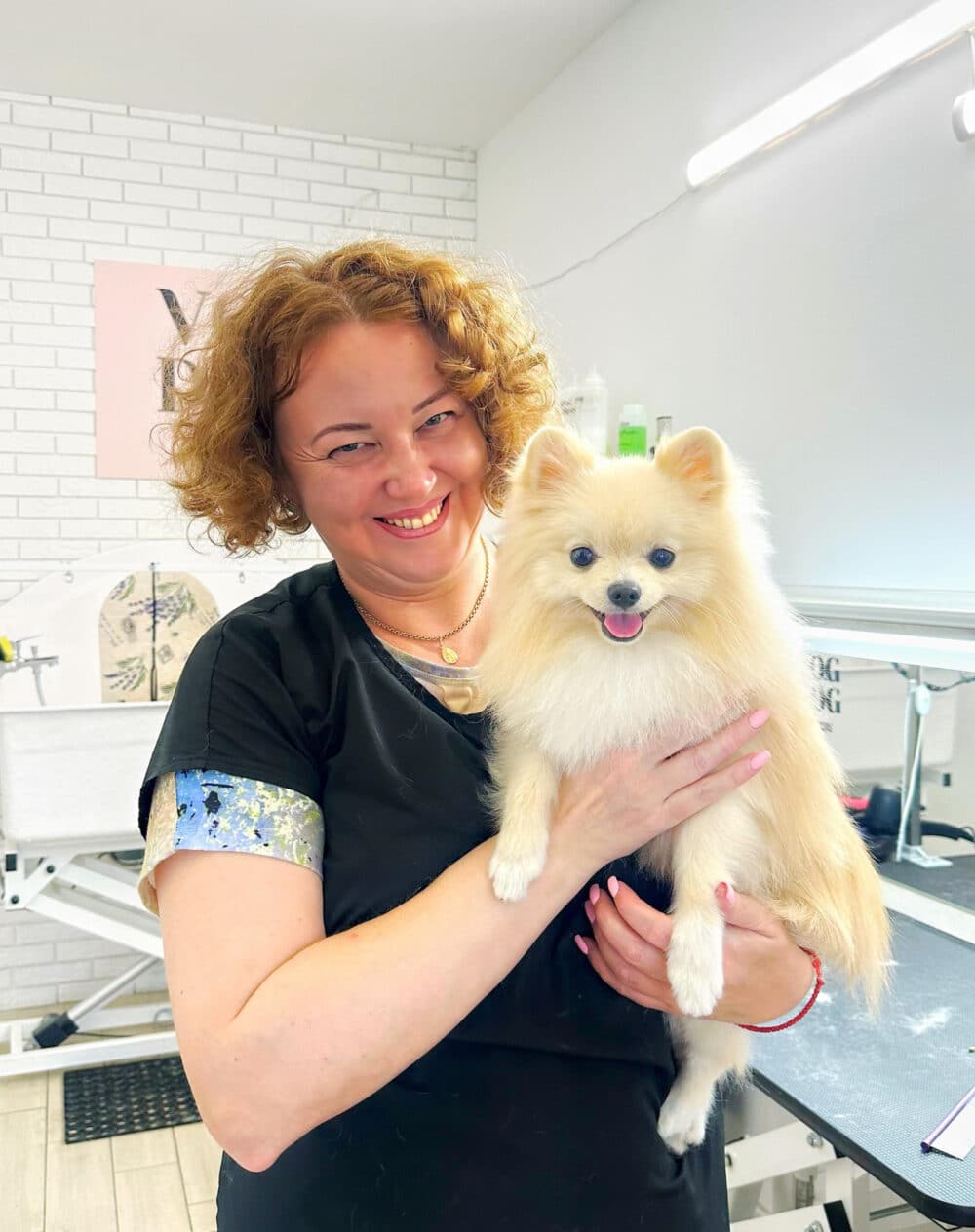
In general, proper care of the paraanal glands is an important part of the overall care of your dog. Be alert for any signs of trouble and monitor your pet’s condition regularly to ensure their comfort and health. Contact the specialists of the “V.O.G. DOG” chain of grooming salons, who will be able to check the condition of the glands, clean them, and, if necessary, refer you to a veterinarian for a narrower consultation.

